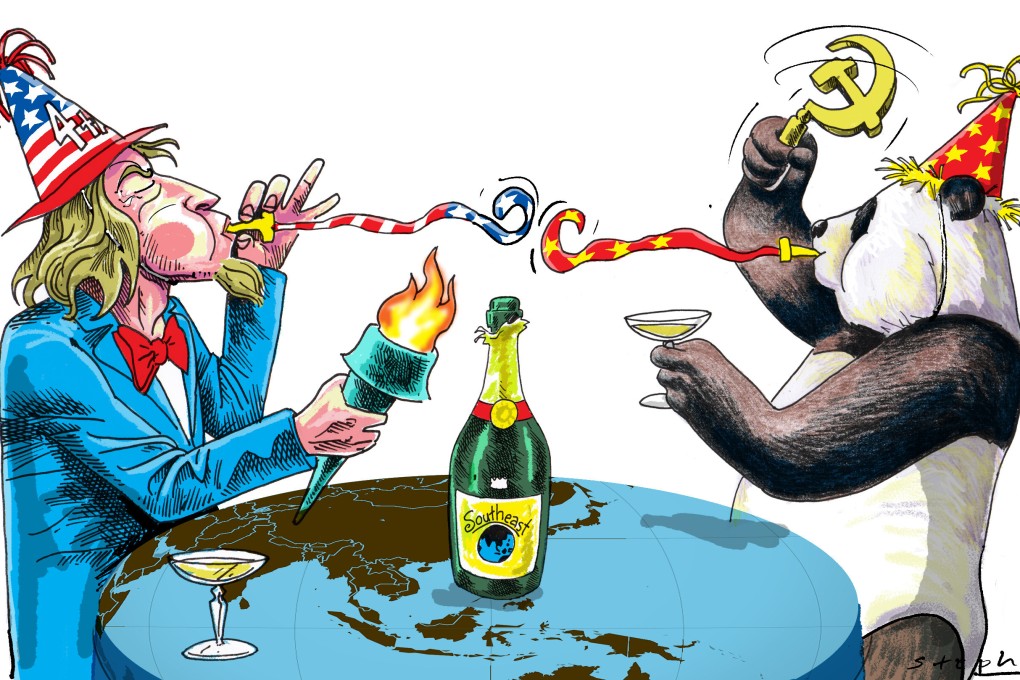Advertisement
Opinion | A critical juncture in the China-US contest in Southeast Asia
- Celebrations for the Fourth of July in the US and the Chinese Communist Party’s centenary will intensify the clash of narratives among the competing powers seeking greater regional engagement
- In high-level diplomacy, Covid-19 vaccine supply, infrastructure and trade, China has made much headway
Reading Time:4 minutes
Why you can trust SCMP
3

July will be an important milestone for the two great powers jockeying for position in Southeast Asia. For the United States, the Fourth of July is an occasion to celebrate its triumph over the pandemic, the revival of its alliances and its recommitment to global leadership. For China, July 1 marks the centenary of a ruling party that presides over one of the most spectacular economic miracles in history.
Washington will renew confidence in its democratic values. Beijing will fete the achievements of its governance and economic model. For Southeast Asia, this clash of narratives epitomises the widening gulf between two key partners, and demands more astute hedging.
US healing, reopening and re-engagement with the world give shape to President Joe Biden’s proclamation that “America is back”. Meanwhile, President Xi Jinping’s directive to create a “credible, lovable and respectable image of China” signals a new diplomatic tack. Southeast Asia, a brewing flashpoint for great power competition, offers fertile ground on which to assess how the two contending pitches resonate.
Advertisement
While the US rebuilds transatlantic ties, giving more weight to the Quadrilateral Security Dialogue and G7, China is doubling down on neighbourhood diplomacy, particularly in Southeast Asia. The US has a lot of catching up to do in the region. But the great demand for public goods and worries of overexposure to one partner make spaces for rivals offering alternatives.
In high-level diplomacy, Covid-19 vaccine supply, infrastructure and trade, China has made much headway. Foreign ministers of China and the 10 Asean members have met in-person twice since the pandemic started – first in Vientiane, Laos, last year to foster pandemic cooperation, and earlier this month in Chongqing to mark the 30th anniversary of dialogue relations.
Advertisement
Advertisement
Select Voice
Select Speed
1.00x
